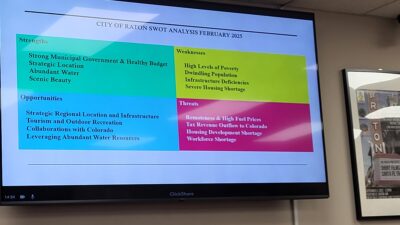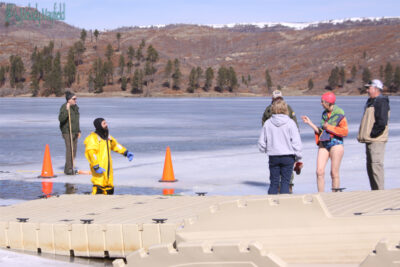FOR RELEASE: December 18, 2019
Media Contact: Lilly Irvin-Vitela, President and Executive Director, New Mexico First lilly@nmfirst.org
New Mexico First, a nonpartisan organization committed to engaging New Mexicans in public policy and civic life, has released a policy brief on Cliff Effects and Churning in Public Benefits. The staff and board of New Mexico First believe that sound public policy and a healthy democracy are strengthened by civic engagement, public deliberation, and principled non-partisan research. This report expands on concerns raised at the May 2016 New Mexico First Town Hall on Economic Security and Vitality for New Mexico. A bipartisan consensus recommendation was advanced and adopted related to cliff effects. Recommendation #9 from the final report is to “Advance Family-Friendly Policies.” A specific strategy identified related to this recommendation is to “eliminate disincentives to earning more income for people in poverty, such as cliff effects in work support programs.” In 2018, SJM18 was passed by both houses of the New Mexico State Legislature with unanimous support. New Mexico First developed SJM18: Family Support Services Info. The memorial addresses how families transition from poverty. The memorial was the first step in researching how New Mexico can smooth out the benefits “cliffs” that families face as their earned incomes increase.
The policy brief addresses key issues, including definitions of the cliff effect and churning in public benefits; an overview of some core public benefits available in New Mexico; policy options and department level quality improvement efforts that are working in other states to prevent the needless interruption of services; and policy tools and opportunities that hold promise in NM.
Secretary of the New Mexico Human Services Department, Dr. David Scrase, explains, “Both Federal and the NM State government provide significant help to people in difficult life circumstances by providing food, clothing, utility bill assistance, and health insurance. Unfortunately, as New Mexicans are able to find a job and begin to make their way back to independence, these benefits often are removed too soon, leaving our neighbors worse off than before they sought employment. Solving this “cliff effect” is of critical importance in our state, where we have the third-highest poverty rate and the highest food insecurity rate.”
Lilly Irvin-Vitela, report co-author and New Mexico First President, describes the issue. “Many working families in New Mexico and their children live in poverty. This impacts access to food, housing, quality early care and education, afterschool care, healthcare, and other basic needs. Slight fluctuations in earned income can impact eligibility for benefits, leaving a family in a worse financial situation than the one they were in before a raise or promotion was earned. Furthermore, challenges navigating benefits eligibility and re-verification can create a cascading downward spiral that intensifies the crisis a family is experiencing. Fortunately, there are a host of family-friendly policies and administrative changes that other states are using with some success and that NM has begun to implement.”
Allan Oliver, Executive Director of the Thornburg Foundation, which funded the study, spoke about the importance of strengthening understanding about the poverty trap presented by cliff effects. “Eliminating the “cliff effect” in our safety-net programs gives working families a clear path out of poverty. When working families can’t afford to take the better paying job or pay raise, because they will lose medical coverage or childcare reimbursement—our whole state loses. We lose from an underemployed workforce, lost revenue for the state and a failure to help our own neighbors. This report lays out how the cliff effects and churning of public benefits creates real barriers for families seeking to better their own condition and provides some clear options for policymakers to reduce or eliminate those barriers.”
The development of this report was made possible with a grant from the Thornburg Foundation, a funder of New Mexico First.
Download a copy of the report: Cliff Effects and Churning in Public Benefits Policy Brief






